

Prior Episodes | 7972 (5 BBY) | Next Episodes
Continuity & Analysis
Andor - One Way Out (2022) [S1E10]
A rare opportunity opens and the time for Cassian and his fellow inmates to act is now.
Andor - Daughter of Ferrix (2022) [S1E11]
A fugitive once more, Cassian must make his next move before it is too late.
Andor - Rix Road (2022) [S1E12]
Targeted by numerous interests, the fugitive Cassian returns home to Ferrix,
a tinderbox that is experiencing a spark of rebellion.
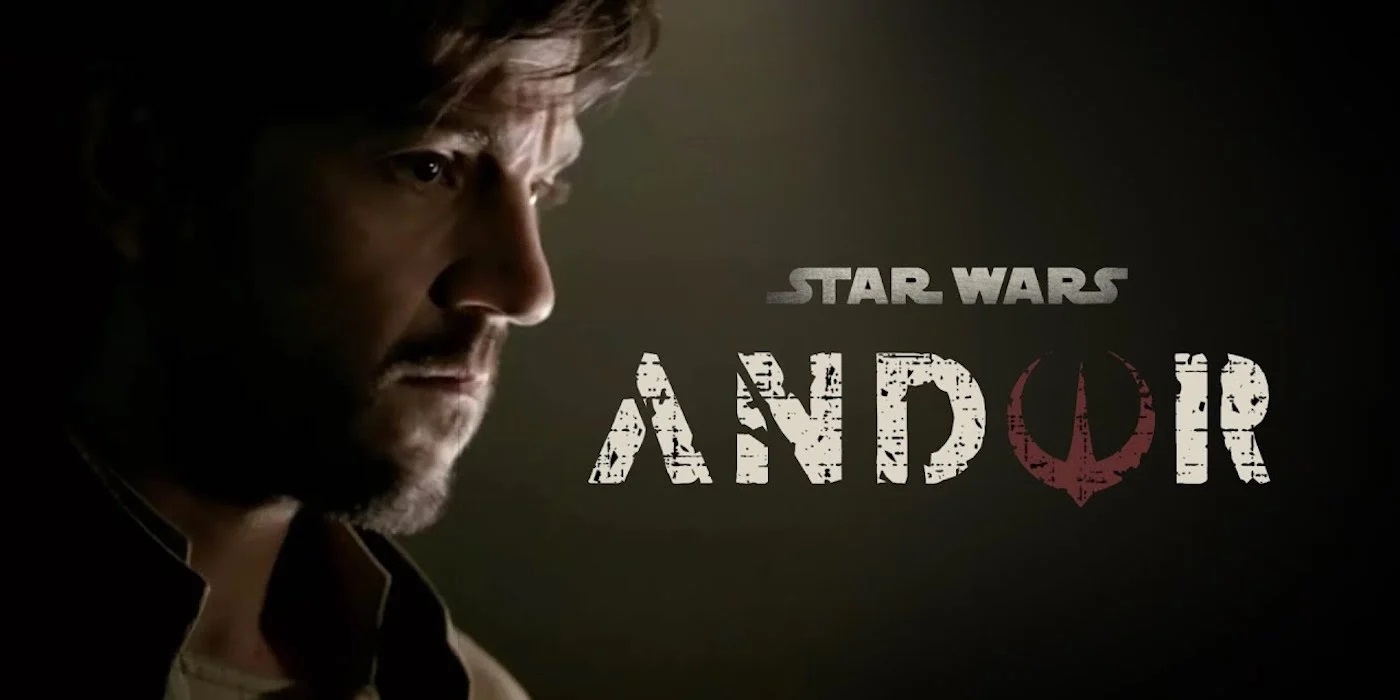

CONTINUITY
These three episodes deal with Cassian's escape from prison and the disorder on Ferrix. Six worlds are seen in these episodes:



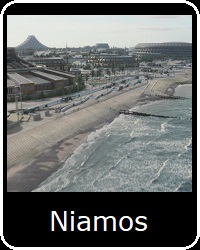


- Kafrene Rescue Salvage is responsible for damaged or derelict ships in the Kafrene System. Their report regarding the dead pilot from Kreegyr's
organization suggests that hydraulic failure due to an "unresponsive GPE 7000" caused the pilot to freeze "following hyperspace re-entry",
unless the "operator" mentioned as "frozen" was the GPE 7000. It seems that the pilot either died from coming out of hyperspace in this
state, or froze to death because hydraulic failure was related to the ship's life-support systems including heating, and his ship was adrift.
This pilot's state was actually a staged scene after the ISB had intercepted him, however this potential hydraulic failure problem must be
something that can happen, or it would not make a plausible cover.
- Chandrilan Embassy on Coruscant is typical of classical Chandrilan design, which the seated senator is not supposed to alter significantly,
as it is "state property" and as such "the rules are strict on decor." It is therefore emblematic of Chandrilian culture in general, which
is defined by adherence to the particulars of their traditions. This is true of any culture, at least in part, since any unique identity is
defined by its uniqueness, however adherence to tradition is pronounced in the Chandrilian identity, and their traditionalist ways
could be considered somewhat constraining. As Sculdun points out, this means that "choices for change are limited", but that these
limitations provided "clarity", that "boundaries can be liberating", and that "the old ways have value." This includes the Chandrilian
custom of arranged marriages for socio-political purposes, theoretically approved of by the adolescents who are "coming of age",
which like Mothma's own marriage, are usually more about a social partnership than love. Although she finds the idea of putting
her daughter through the same, as Chandrilian Senator, she has always served as an icon of her culture's traditions and values.
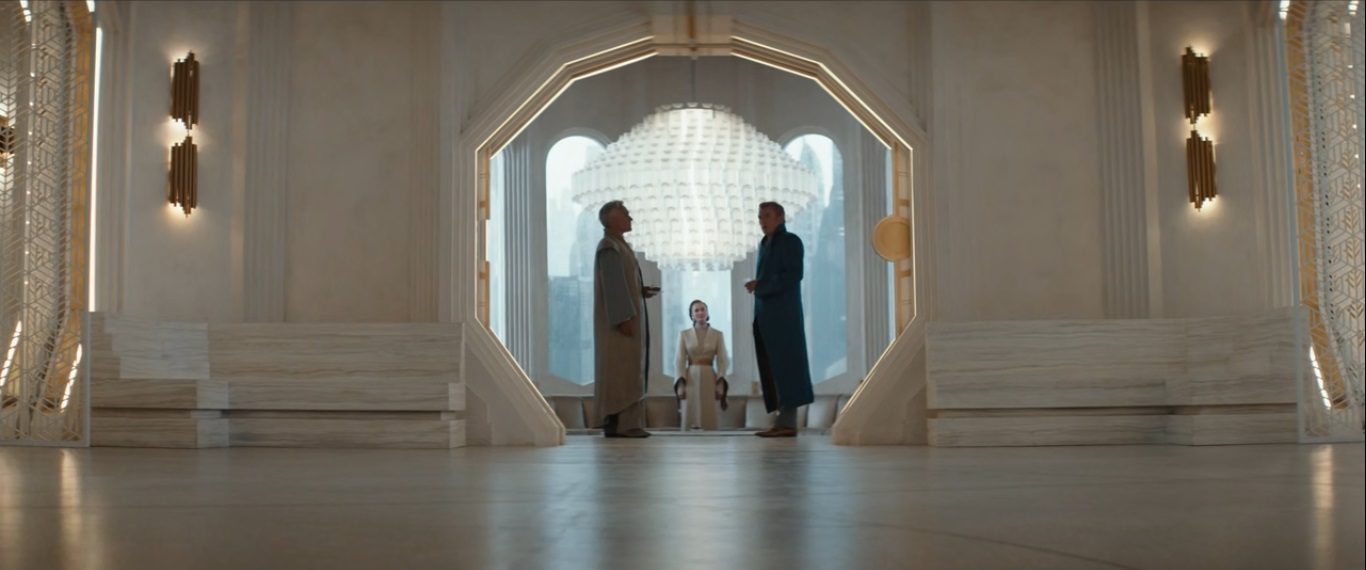
- The Empire's restrictive policies are a cause for concern even amongst the wealthy, however the rich can still usually use their wealth
to protect their wealth. The Empire relies on the enthusiastic support of its wealthy citizens to maintain its stability, and therefore
are unlikely to target the rich unless, like Mothma, they have cause to find an individual troublesome. Their latitude has begun to
wane, however not to a degree which seriously affects the super-wealthy. The Imperial Council has passed new banking regulations
directly, "without Senate consultation", which are described as "cumbersome" but "avoidable." Those in the banking sphere and
their wealthy clients need only know how to play the Empire's financial "game", and they can likely avoid unwanted scrutiny of their
transactions, with the help of large financial outfits like Sculdun's which are engaged in mega-scale transactions and can "bundle"
transactions in "ways that make outside observation impossible."
- The overseers at the Imperial factory prison are expected to enact a "complete program protocol" in the event of a major breach of
internal security, and to fry entire units for any failure to comply. A breach as significant as multiple units breaking out is to be
handled by frying the entire level, to create a "firewall" against this spreading throughout the facility.
- The Narkina 5 factory prisons are powered by hydroelectric generators, which obtain their power from seawater falling through spills
into the artificial chasm within the outer walls of the facility. This system must use repulsors or some similar technology to pump out
the seawater below, otherwise the facility would eventually fill up with water and also cease to generate power. This pumping system
must utilize some of this civilization's advanced high-energy, low-power technology, otherwise this method of power-generation
would be terribly inefficient, requiring most of its generating capacity to pump out the water. If pumping the water out is not energy
intensive, as is assumed to be the case, then these hydroelectric generators would generate more than enough power for any
facility of this size's assumed power requirements. There is also a back-up power supply which can power the entire facility for
an unspecified period of time, suggesting its power requirements are well within the scope of an operating hydroelectric system.

When ordered to deactivate the hydroelectric generators, the Imperial officer informs Cassian that "once we turn it off it
takes months to get it back up and running." Why would this possibly be accurate? Even suggesting that it would take
hours would be hard to believe, so this just seems absurd. It can be assumed that the writers wanted this to be true,
and didn't really think this out. It is a power-generating dam. Turning it off means closing the intake gates which let ocean
water cascade through the turbines. Turning it back on means opening these gates again. Whatever technology is being
used to pump out the water at the bottom of the facility's artificial chasm must be capable of clearing more water out
than is being pumped in at any given second when the generators are being run at full power, and thus the water is
flowing in at full spill. If the generators were turned off, whatever modest power was being used to pump out the water
would quickly fall to zero, the basin would be empty, making that power available. The back-up power must be able to
open the gates to let water in again on its own, anyway, and even in an absurd set-up where it could not, it is incredibly
hard to believe it would take months to get them open again, no matter how convoluted an explanation one would try
to concoct to make this make sense. This was not well-thought-out.
- As has previously been seen in SW material, internal sensors in this civilization are effective at recognizing lifesigns, and can track
but not specifically identify humanoid lifeforms within their scanning range. It is assumed that most security scanners are
adept at this because they are tuned to look for the distinct and highly organized energy patterns given off by living beings
of a Human's size. This kind of identification is actually simpler than a scan for something like material composition.
Main Article: Scanners, Sensors, and Cloaking Devices
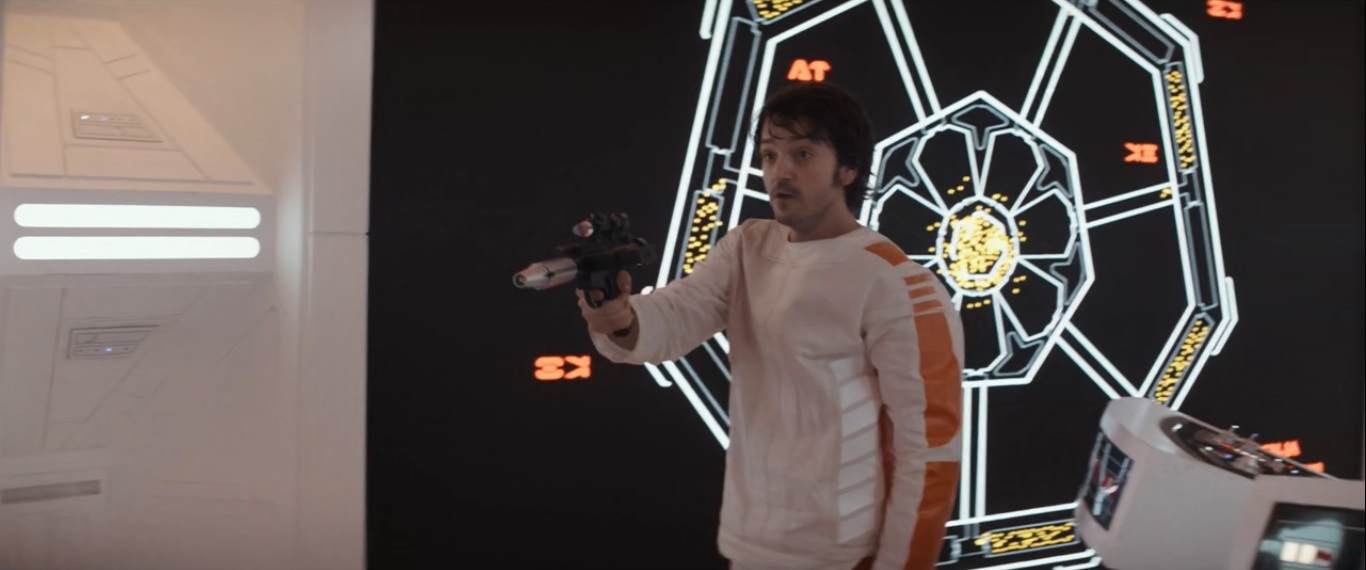
- Lt. Lonni Jung of the ISB is also a rebel spy who works with Luthen, who has been a rebel agent for 6 years at this point. His cover is
so deep and carefully guarded that it has been a year since he reached out to Luthen for a face to face meeting, however
Luthen was "surprised he waited this long." He is reaching out now only because the Kreegyr situation and Meero's investigations
are major enough to warrant it, and because he is hoping it might be enough for Luthen to let him retire from service. Luthen
feels that Meero's search for Axis is to be encouraged because she is "wasting time", even though she has correctly tied him to
Aldhani, Ferrix, and the rash of stolen equipment. It does eventually prove true that this hunt diverted her from Luthen and
other rebels' subsequent activities, however her obsession with this will eventually lead to Luthen's being discovered 4 years
after these events. Luthen's response to the Kreegyr information is to allow a 'Coventry', in reference to the bombing of that city
during WWII, and allow Kreegyr and his men to walk into an ambush at Spellhaus to protect the invaluable insight which having
a spy in the ISB provides. Luthen rightly feels Lonni is far more valuable in the long run than Kreegyr and 30 soldiers. Luthen also
feels it useful to lie to Lonni about Aldhani, claiming to have had nothing to do with it. It can be assumed that Luthen feels that
it is safest to disassociate himself from any potential ethical concerns about that operation and its fallout which Lonni might have.
- Although Lonni has honored his "vow" to inform for Luthen, fatherhood has led him to reevaluate his priorities and desires, and to
seek to extricate himself from both the rebels and the ISB. His tentative plan is to claim he is leaving for health reasons and to
fall back on his wife's family's import business for their livelihood. As difficult as it would be to leave the ISB, it is impossible to
leave the rebel employ as he is too important to them, and because Luthen would kill him as a loose end if ever he outlived
his usefulness, however Lonni is only peripherally aware of that eventuality. Luthen tells him he regrets that Lonni is "trapped",
but that his sympathy only goes so far since he himself has sacrificed not only the simple pleasures of life, but also his soul
having to become like the Empire to fight them, and knowing he will never get to enjoy the world he is fighting to create.
- Marva's death leads B2EMO to enter a period of mourning and the droid version of sadness associated with the loss of his long-time
companion. Droids have no purpose without input, and thus something to react to and do. Their artificial brains and their
subsequent personalities become built up over time, and form around the input they are used to functioning around, most
especially the Human input they are designed to function with. The loss of Marva leaves a hole in B2's life, which makes him
feel incomplete without her, exactly as the loss of a friend or loved one effects an organic being. In the same way as one would
with an organic being, there is nothing to be done to truly fill this absence, but it can be helpful to distract them with something
to do, particularly something related to the memorial of the loved one they are mourning.
Main Article: Droid Intelligence
- The Keredian and his friend that Cassian and Melshi come across are guarding their parked ship with an automatic defence system which
launches nets to capture would be hijackers. These net traps are sensible deterrents for ships parked in remote locations.
- Ferrix custom is to "brick" someone two days after their death, by mixing their ashes with mortar and local stone dust, putting
their name on it and firing it in a kiln. The bricks are then added to a wall in the city. A prominent citizen of Ferrix like Marva
"rates a big send-off", which would normally close down Rix Road in the city.
- The Empire's policy on most worlds is to strategically disrupt their local customs by citing regulations and security concerns. This has
been their policy on Ferrix, and it is working as designed, both to disrupt their unique local culture and to cause manageable
discontent. The predictable local responses allow the Empire to identify the most troublesome locals and to gauge local resistance
in order to better calibrate their future efforts. Ferrix's elders have been repeatedly asking for funeral permits and the right to
close Rix Road, even knowing the Empire will just deny their request, as part of a "list of grievances" they are building. The Empire
only allows such permits when it suits some political, military, or law-enforcement agenda, such as in this instance.
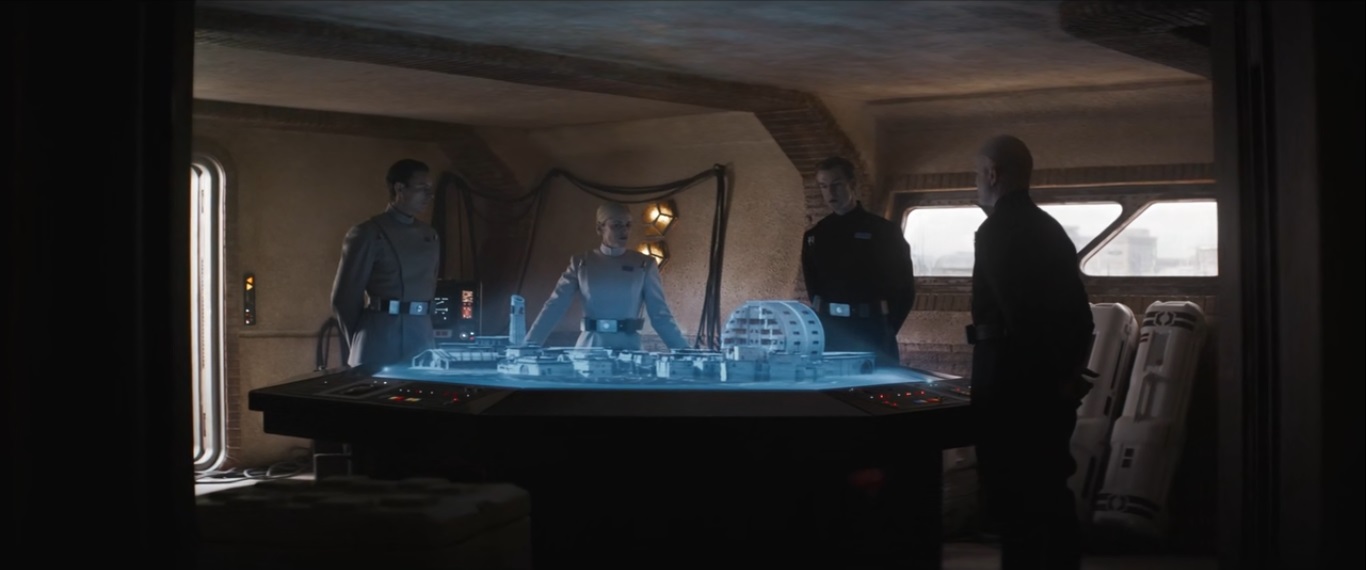
- The reward for escapees from the Imperial factory prison on Narkina 5 is 1000 credits each, alive or dead.
- Chandrilan braids are considered symbolic of their culture and their marriage traditions, which offer "safety" in their binding nature.
- Mothma was subsidizing Luthen's activities by 100,000 credits a month from her family trust, laundering it through a series of accounts,
and thus far without incident. Sometime near the beginning of 7972 (5 BBY), bankers on Chandrila became aware that "Imperial
inspectors might be taking a close look at Chandrilan accounts", which will apparently soon be happening. Mothma currently
has an unexplained 400,000 credit deficiency in her explained transactions.
- The sacrifice of Kreegyr and his troops to play the "long game" with the ISB makes strategic sense to Luthen and to Saw, because they are
trying to win a war. If the loss of some troops in combat is accepted as necessary for victory, than surely their loss simply to protect
the cover of an intelligence asset must be seen as even more necessary. As a result, those who feel they are in a supervisory role, like
Luthen, and those who are better insulated, like Saw, may at times choose to sacrifice comrades they see as less vital in order to
win. It is true that an Imperial rout in this instance should effectively put the ISB leaders at ease regarding fears of infiltration.
- A Cantwell-class arrestor cruiser is seen for the first time, having been made part of canon by its appearance in an advertisement in Solo.
They are a product of Kuat Drive Yards, like most large Imperial warships. Their design is based on concept art created during
the development of the original film Star Wars, for what would become the classic Imperial star destroyers.
These 'arrestor' cruisers are designed to arrest ships, and are equipped with powerful tractor beam arrays.
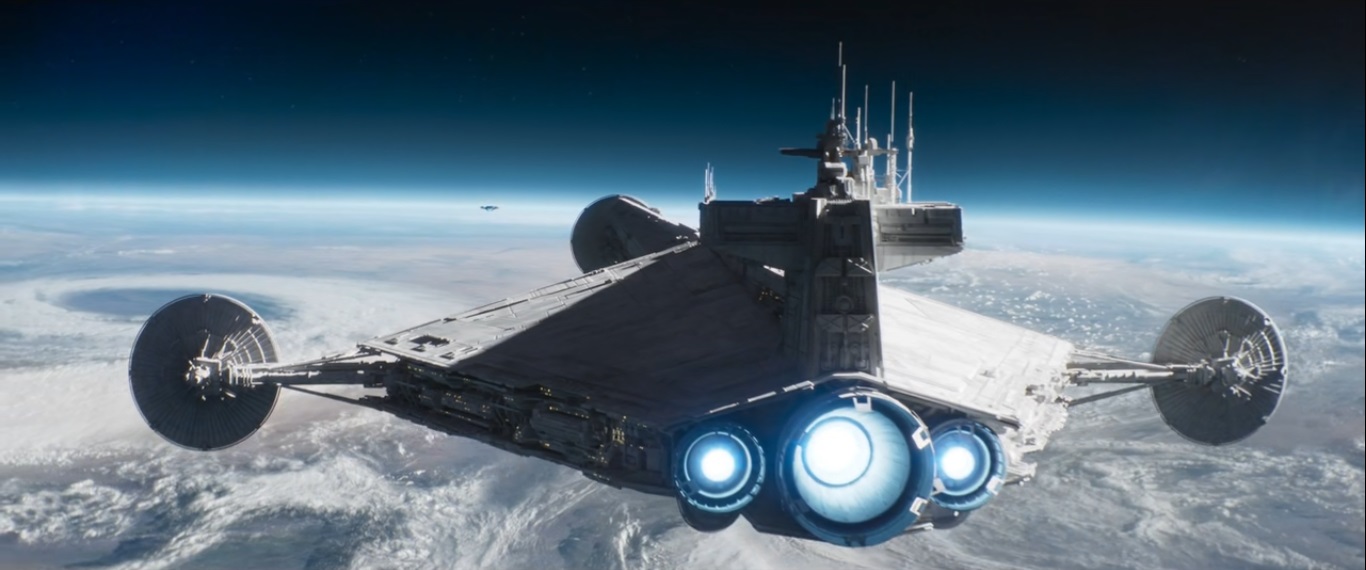
- There is a 'Segra-Milo Imperial patrol', which suggests this system must have some habitation or visitation. There had better be, for the sake
of Saw and his men, since the Empire is on patrol due to "partisan activity in the area" and declared the system "a piracy zone". If this
planet or system were otherwise uninhabited, the Empire is incompetent not to find their base, and the partisans are incompetent to
remain here. It is assumed there is some, regular, legal traffic in the system given the attitude of the Imperial crew towards Luthen's ship.
At the same time, it is also likely traffic is not too substantial, as the Empire seems to be boarding and searching ships just for being here,
and because the captain suggests his bored troops could use practice with boarding and inspections. Imperial policy is to first scan
a ship's transponder ID. Luthen chooses to identify as being from the Alderaan Trade Alliance, presumably because it is a relatively
non-threatening ID which might also explain his presence. His assumed transponder ID was "Alderaan 12912505", suggesting
a uniform ship registry system with IDs in a similar format. The Imperial procedure also includes comprehensive scans of the ship,
including a thermal scan. Scanners are here again shown to be proficient at detecting and diagnosing other ship's systems and
detecting electrical and heat based signals, even at a distance, however not so well that clever opponents cannot mask the powering
of one system by intentionally inducing a different system to indicate an overload or power irregularity indicative of a fault.
Main Article: Scanners, Sensors, and Cloaking Devices
- The captain of the Imperial arrestor cruiser is Commander Elk. His first officer is an unidentified officer with the rank of Line Captain.
Main Article: Ranks and Rank Insignia
- Luthen uses a tractor beam countermeasure which releases shrapnel intended to hit the tractor beam array of the attacking ship. This kind
of countermeasure is only effective if the attacking ship can be induced to turn their tractor beam up to a high intensity, otherwise
the material will not hit before the beam can be deactivated or impact with enough force to damage the array, as the velocity of
the objects being drawn in is directly proportionate to the strength of the beam and inversely proportionate to their mass. With
the tractor intensity turned up to try to grab the haulcraft on full engines, the shrapnel will impact the tractor dish with enough
force to critically damage it, ending the beam. The Imperial reaction suggests it is a surprising defense to find on a haulcraft.
- Cassian calls Ferrix using a public system, and although he warns against using names, Xanwan uses his several times. Cassian did try to
reduce the chance of monitoring by calling "the old box line", however this call still had to utilize HyperCom in some way.
Main Article: Hyperspace Communications
- Mon suggests her husband "go to Canto Bight" if he wants to gamble so badly. Canto Bight is a city on the planet Cantonica which is known
for casinos and gambling. Canto Bight is made canon by this mention, having previously only appeared in non-canon material.

Flashback events take place in or before 7959 (18 BBY), at least 13 years prior to the main story, on Ferrix.
This flashback is an illustration of Cassian's memory of his adoptive father teaching him a lesson applicable to
his current situation. Cassian was 15-years-old or younger at the time of those events.
- The Daughters of Ferrix is a prominent social club on Ferrix, of which Marva Andor was a past president. Lt. Keysax considers them
"a local annoyance", suggesting the Empire tolerates their complaining because they seem to be of little real concern.
- Lt. Blevin oversees an 'ISB sector' which includes the Alderaan Sector, and thus is quite interested in anything the ISB can learn that might
compromise Senator Mothma. Blevin seems to think Perrin's gambling might explain their recent odd banking maneuvers, which is
likely why Mon had the heated conversation with Perrin knowing Kloris was actually listening. In the event that the Empire finds cause
to investigate her accounting irregularities, she retains the option of throwing her troublesome paramour under the rhetorical bus.
She likely also takes every opportunity of demonstrating her upstanding character while pretending to believe she is speaking privately.
- Anto Kreegyr's rebel group was wholly eliminated by the Imperial ambush, which took no prisoners. Lt. Meero is upset that this means there will
be no one to interrogate in connection with her Axis investigation, but Major Partagaz indicates that nothing is more important than "wiping
the taste of Aldhani from the Emperor's mouth." Imperial politics often hinders their efficiency and effectiveness.
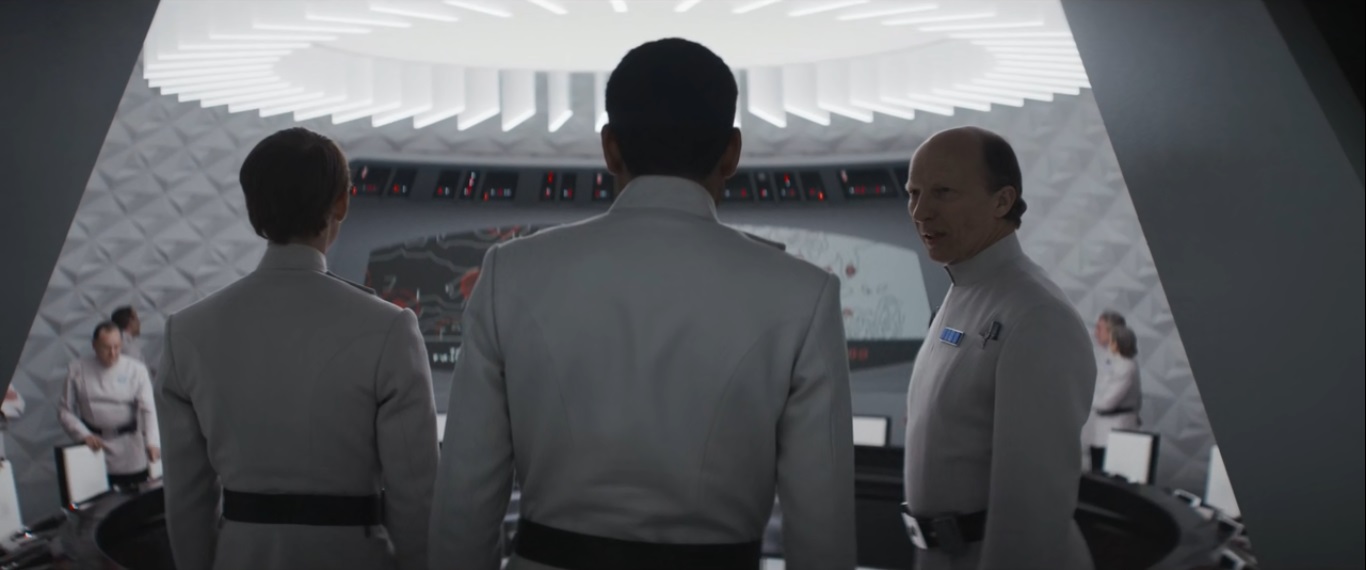

Why doesn't any Imperial armor ever seem to protect against a single blaster shot? It may be there is no armor other
than beskar which is protective enough and light enough to wear, and that the Imperial armor is actually absorbing
some of the blast and therefore increasing the possibility of surviving a blaster hit, however all too often in SW material
does the armor seem to do essentially nothing, and therefore is actually hindering the Imperial soldiers by making
movement awkward. It is true the armor can protect them against physical force and less powerful weapons, and it is
likely that blasters are so widely used (despite their slow firing rate) because they are capable of burning through armor
which would stop ordinary projectile weapons or weaker energy weapons, so there could be a point to wearing it even
though it does only so much against a blaster, but it still seems absurd when Cassian shoots a Death Trooper directly in
the armor and it seems to kill him, or at least put him down. They never seem to be writhing around in agony after being
hit, and getting shot rarely knocks someone unconscious, so it has to be assumed they are dying and the armor is useless.
- In order to decrease the chances of being detected leaving a planet, it is best to fly low near the ground, and usually advisable to fly out
to a remote area before making the ascent. It is also advisable to fly manually to prevent the signals from an autonavigator from
being detected, and essential not to broadcast or receive any communications signals.
Main Article: Scanners, Sensors, and Cloaking Devices
- The Death Star is currently over Scarif, and appears to be structurally complete, other than the last stage assembly of the main weapon.
The main weapon cannot be fully completed or installed in the Death Star until the exact configuration for successful firing is
determined, which is the famous decade-long delay in completing the battlestation, but in the meantime the physical structure
of the weapon is largely known and is being assembled. This includes specialty parts which are required in large numbers, which
is why many are assembled in Imperial prison factories like the one in which Cassian was unknowingly building them.
ANALYSIS
The ISB prefers to outsmart its enemies for maximum effect, and setting traps and staging events with the aim of capturing
important people, uncovering support networks, and making their enemies' tactics work for their goals. The counterintelligence
efforts of the rebels attempt to match and raise these tactics by allowing the Empire to believe they are uninformed about Imperial
plans and intentions, and by putting the Empire's predictable responses to use for their aims. As a result, many of the seemingly
straightforward events which take place are actually the result of staging and maneuvering behind the scenes by competing chess
masters, just as has been the case on Earth for the last century and a half. For example, there will soon be an attack by a rebel
group against the Spellhaus power station, which will be defeated by a superior Imperial force. All those involved in that battle
will be doing what they reasonably would be motivated to do, either to attack a significant Imperial target or to defend it, and
they will have no knowledge of any other significance to these events. An outside observer might conclude that this was a simple
military engagement, when in fact it never would have happened if not for the machinations of the intelligence community on both
sides of the conflict. This is why Meero's investigation of Axis is actually a significant threat, despite Luthen's seeming complacency
regarding it, since losing their intelligence network would effectively end any hope of countering the Empire's intelligence community.
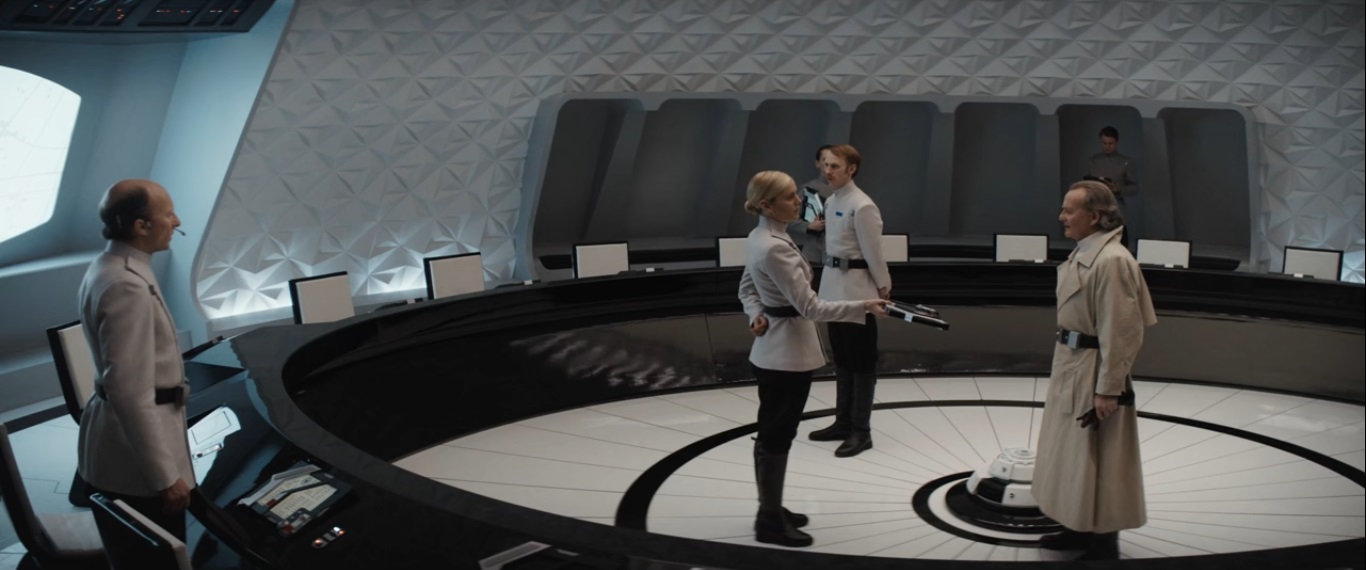
The true heroes of any revolution, rebellion, or insurrection are usually unsung, unknown, or at the very least fated to die long before
their efforts ever lead to significant change. This includes many warriors who will die in the premature and early struggles, whose work
is beyond vital to setting the stage for the more effective forces which will take their place, but they at least have the knowledge that
their efforts and sacrifices will be collectively honored by those who live to see victory or continue the struggle. Those who do the most
vital work, the infiltration, espionage, and subterfuge which makes any effective resistance possible, are often fated to sacrifice their lives
and happiness, as well as often their integrity, to achieve momentous victories which no one will hear about, for the benefit of others who
will live to reap the rewards of their sacrificing everything. This requires a certainty of purpose and a strength of character which can truly
be said to be heroic, and yet, as Luthen points out, it also requires the vanity to believe the ends justify the means, and an ego which feels
justified in imposing its will and desires upon the world whether others like it or not. This means that the greatest heroes of a rebellion
are often unknown or misunderstood individuals who are simultaneously both people of saintly character and self-important sociopaths,
depending on one's point of view. Nevertheless, their willingness to give everything for the cause is the only possible route to victory.
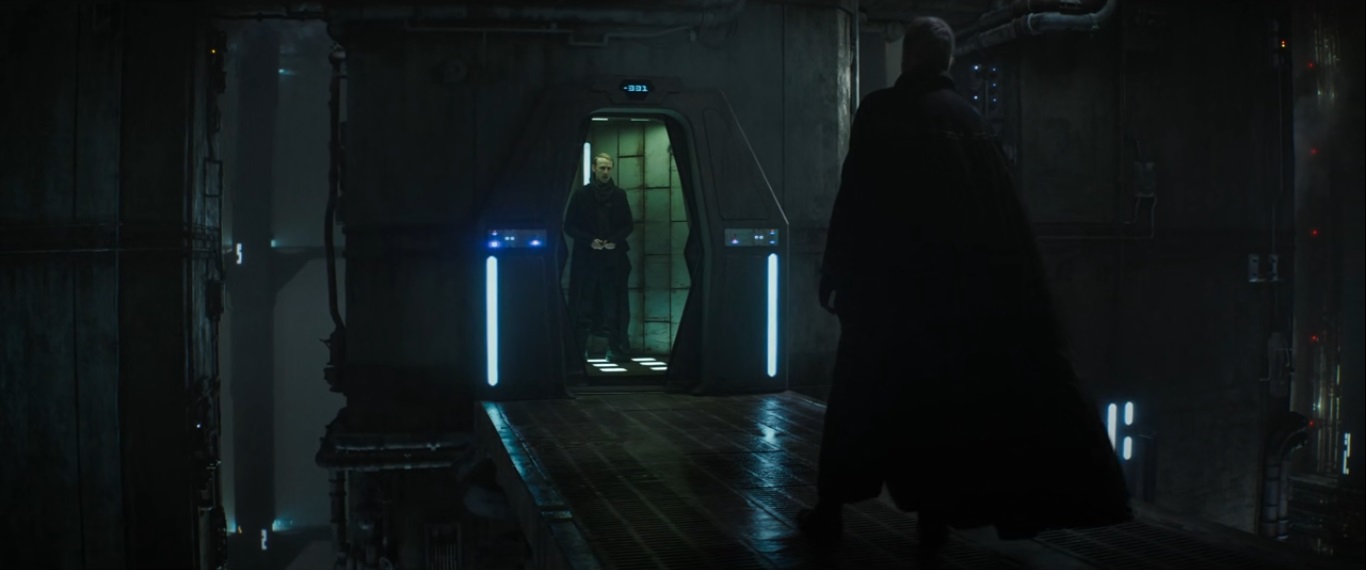
Nemik's revolutionary treatise correctly identifies that the chief flaw in imperialism, or indeed in attempting to control anything, is that it
requires a continual effort to keep something from returning to its natural state, and that effort cannot be maintained wholly or indefinitely.
It is like damming a river, and unnatural structure succeeding for a time in controlling water, but one that will "crack" and "leak" against water,
wind, mass, and gravity over time, until the day it begins its inevitable and fantastic collapse when the pressure is released and the river
returns to its natural state. The dam builders know this, and must work tirelessly to maintain the dam to delay the inevitable, and to enjoy
the benefits they get from holding things in this unnatural state. Imperialists aren't just holding back an element, they are holding back being
who can think and choose their actions, so psychological control is their highest priority. Imperialism therefore attempts to instill fear such
that the masses don't realize their own strength and rise up together against them, because they know this state is unnatural and because
they are in fact the ones who are afraid, of losing the power and losing control over those they have oppressed and victimized. They will
therefore respond to rebellion by grabbing the reigns harder, which only exposes their desperation and tentative position. Empires often
suffer death by a thousand pecks, as the "moments of defiance" grow beyond their capacity to manage, and their vulnerability is exposed.
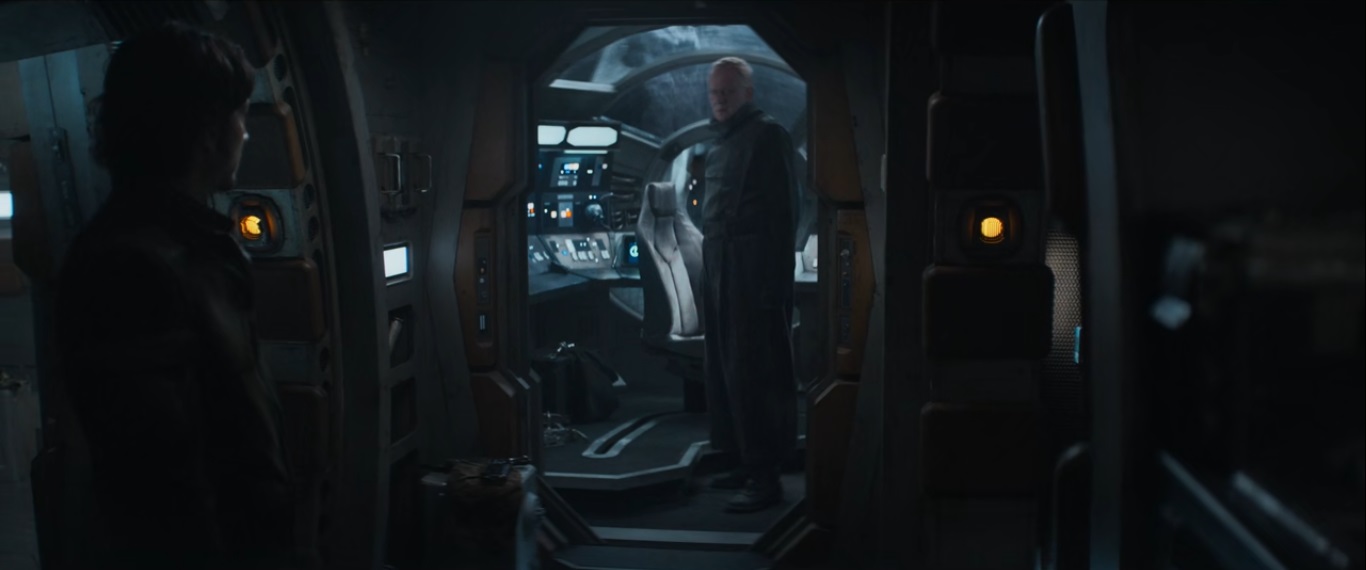
The riot on Ferrix at Maarva Andor's funeral is typical of the anti-Imperial unrest which has become more pronounced in this time period.
Much of the credit for that lies with the Imperial policies, which take an inch and then demand two more, constantly outrageous and provocative,
but at a pace which is just slow enough to avert spontaneous counterreaction. As Maarva points out, at first they seemed unobtrusive, mostly letting
business as usually continue, while slowly but surely they crept in everywhere. The Empire has become a burden to nearly everyone, so it is now
impossible for most not to feel some disdain, but the Empire is also a reality that is powerful, present, and dangerous. It is not merely the weight
of its oppression that brings about the pre-Civil War climate of revolution, but the generational timing. Maarva says Ferrix has been "sleeping",
and that slumber, common in the galaxy, was born out of the war weariness after the Clone Wars, and the near impossibility of resisting in any
meaningful way during the first decade of Imperial rule. The children of the Clone Wars and the early Empire have now grown up and are eager
for change. The older generations have likewise grown tired of living under this burden, and remember what life could be like without it.
It is likely that already a majority of its citizens see the Empire as a failed solution to the galactic debate which was ended, unanswered, when
the Clone Wars abruptly ended under mysterious circumstances. Palpatine's engineering of that conflict was brilliant, as was his rise to galactic
Emperor and the military dictatorship he put in place, however all this resulted in a classic dialectic response. The ideological debate about freedom
and security from that war remained unresolved, his methods have increasingly called into question his virtue and worthiness as a leader, and
his military rule is widely seen as needlessly oppressive. He has therefore guaranteed that his numerous enemies will find common cause to fight
together against him, and that he will find that popular support, sometimes overwhelmingly, favors his downfall and that of his Empire.
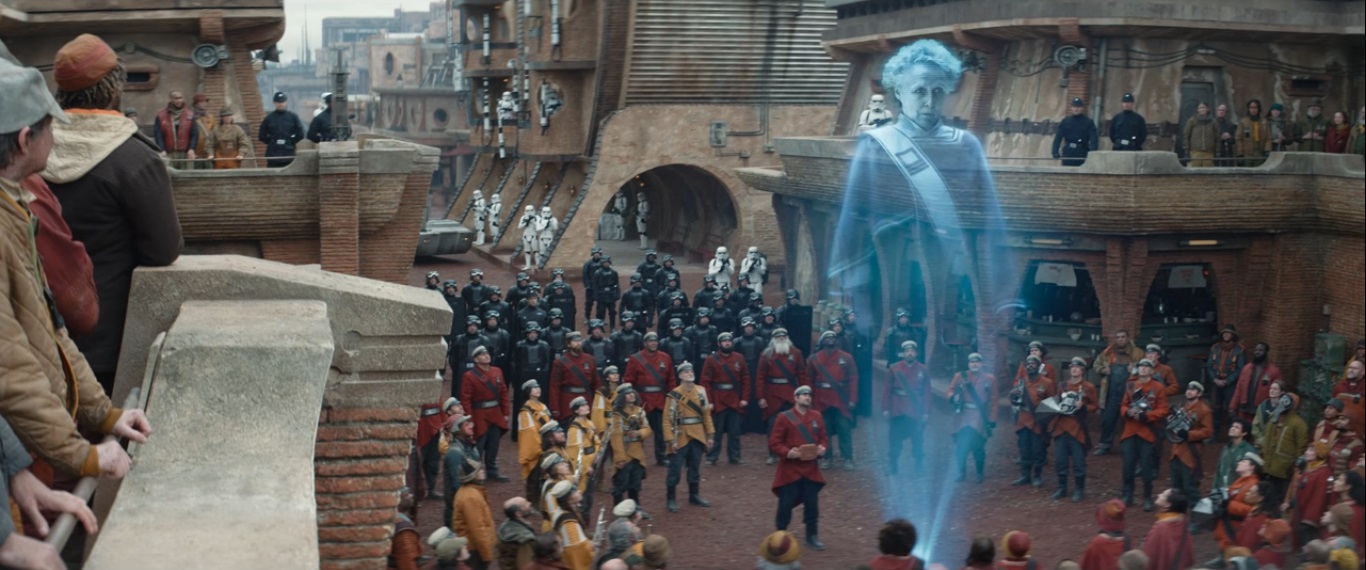
FURTHER ANALYSIS
Andor's Luthen Rael Is a Profound Look At the Cost of Rebellion